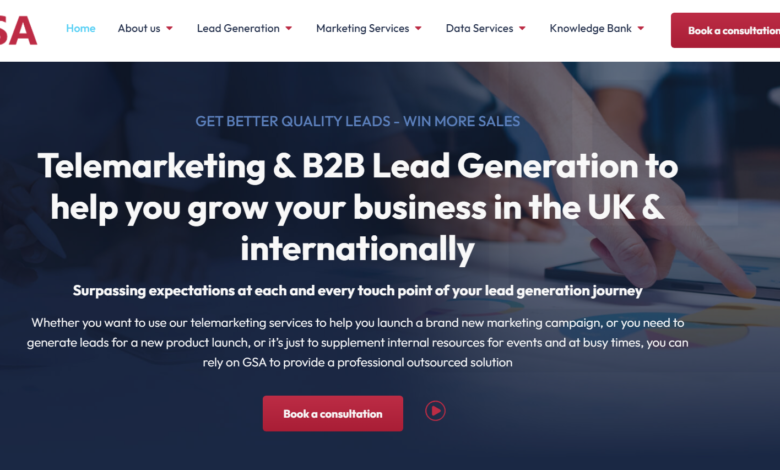Effective Strategies for Business Development
Understanding the Importance of Business Development

Discover powerful strategies to drive business growth and success through effective business development techniques.
Understanding the Importance of Business Development
Business development plays a crucial role in the growth and success of any organization. It involves identifying opportunities for growth, expanding market reach, and increasing profitability. By focusing on business development, companies can stay competitive in the ever-changing market landscape.
Effective business development allows organizations to adapt to market trends, seize new opportunities, and develop sustainable growth strategies. It helps businesses to not only survive but also thrive in today’s dynamic business environment.
Furthermore, business development is essential for building strong relationships with customers and clients. By understanding the needs and preferences of target customers, businesses can tailor their products or services to meet their demands effectively. This customer-centric approach leads to increased customer satisfaction and loyalty, resulting in long-term success.
In summary, business development is a strategic process that helps organizations identify and capitalize on growth opportunities. It is vital for staying competitive, expanding market reach, and building strong customer relationships.

Identifying Target Market and Customer Segments
Identifying the target market and customer segments is a critical aspect of business development. By understanding who your target customers are, you can tailor your marketing and sales efforts to effectively reach and engage them.
To identify your target market, you need to conduct thorough market research. This involves analysing demographic data, psychographic attributes, and behavioural patterns of potential customers. By gathering this information, you can create customer profiles or buyer personas that represent your ideal customers.
Once you have identified your target market, it is essential to segment them based on specific criteria such as age, gender, location, and interests. By segmenting your target market, you can develop targeted marketing campaigns that resonate with each segment’s unique needs and preferences.
Identifying target market and customer segments is an ongoing process. It requires continuous monitoring and analysis of market trends, customer feedback, and competitors’ strategies. By staying updated on market changes, you can adapt your business development strategies to remain relevant and competitive.
In conclusion, identifying target market and customer segments is crucial for effective business development. It allows businesses to tailor their marketing efforts, engage with the right audience, and drive growth.
Building Strategic Partnerships and Alliances
Building strategic partnerships and alliances is a powerful strategy for business development. By collaborating with other companies or organizations, businesses can leverage each other’s strengths and resources to achieve mutual growth and success.
When forming strategic partnerships, it is important to identify companies that share similar values, goals, and target markets. By aligning with compatible partners, businesses can create synergies that amplify their capabilities and market reach.
Strategic partnerships can take various forms, such as joint ventures, distribution agreements, or co-marketing initiatives. These partnerships allow businesses to access new markets; expand their customer base, and share knowledge and expertise.
Furthermore, strategic partnerships can provide businesses with access to new technologies, resources, and distribution channels. By collaborating with partners who have complementary strengths, businesses can enhance their competitive advantage and drive innovation.
Building strategic partnerships and alliances requires effective communication, trust, and mutual benefit. It is essential to establish clear goals, roles, and responsibilities to ensure a successful partnership.
In summary, building strategic partnerships and alliances is a valuable strategy for business development. It enables businesses to leverage each other’s strengths, access new markets, and drive mutual growth and success.
Implementing Effective Marketing and Sales Strategies
Implementing effective marketing and sales strategies is crucial for business development. By reaching and persuading the target audience, businesses can generate leads, convert them into customers, and drive revenue growth.
To implement effective marketing and sales strategies, businesses need to understand their target audience’s needs, preferences, and pain points. This requires conducting market research, gathering customer insights, and analysing competitors’ strategies.
Once businesses have a deep understanding of their target audience, they can develop targeted marketing campaigns that resonate with their needs and aspirations. This involves creating compelling messaging, selecting appropriate marketing channels, and measuring campaign performance.
In addition to marketing, effective sales strategies are essential for business development. Businesses need to have a well-defined sales process, trained sales teams, and effective sales tools. By aligning marketing and sales efforts, businesses can generate qualified leads, nurture customer relationships, and close deals effectively.
Implementing effective marketing and sales strategies also requires continuous monitoring and optimization. Businesses need to track key performance indicators (KPIs), analyse customer feedback, and adapt their strategies based on market trends and insights.
In conclusion, implementing effective marketing and sales strategies is vital for business development. It enables businesses to reach and engage their target audience, generate leads, and drive revenue growth.
Leveraging Technology for Business Development
Leveraging technology is essential for business development in today’s digital age. Technology enables businesses to streamline processes, improve efficiency, and reach a wider audience.
One of the key technologies that businesses can leverage for business development is the internet. Through websites, social media platforms, and online advertising, businesses can increase their online presence, attract customers, and drive traffic to their products or services.
Moreover, technology enables businesses to collect and analyse data, allowing them to make data-driven decisions and optimize their business development strategies. By leveraging tools such as customer relationship management (CRM) software, businesses can track customer interactions, identify patterns, and personalize their marketing and sales efforts.
Additionally, technology facilitates communication and collaboration, both internally and externally. With tools like video conferencing, project management software, and cloud storage, businesses can work seamlessly with partners, clients, and remote teams.
Furthermore, emerging technologies such as artificial intelligence (AI), machine learning (ML), and big data analytics offer new opportunities for business development. These technologies can automate processes, enhance customer experiences, and provide valuable insights for strategic decision-making.
In summary, leveraging technology is crucial for business development. It empowers businesses to reach a wider audience, streamline processes, make data-driven decisions, and harness the power of emerging technologies for growth and success.



